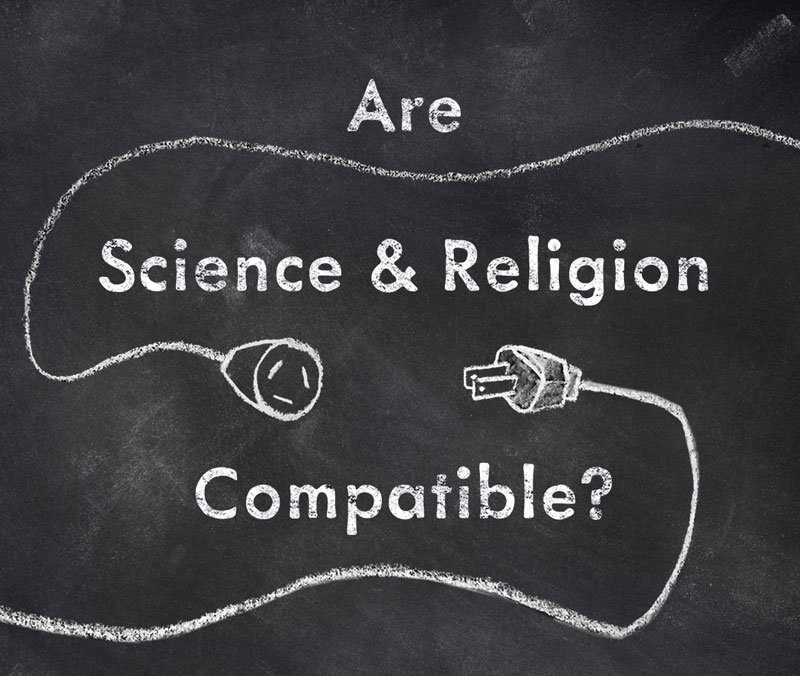Why Study Science & Faith?
By Deacon Jeffrey Still
In the last century in America, science and faith have often been presented as two conflicting approaches to understanding the world around us. Many prominent Christian leaders and many non-religious proponents of science have pushed versions of this narrative forward. Many Christian pastors have warned of the evils of evolution, and many science proponents have told the story of the history of science as an epic struggle against religious dogmatism. And American media, loving nothing more than a good fight, has reported widely on points of conflict between science and faith while ignoring the many points of obvious harmony.
When Netflix and Neil deGrasse Tyson created a remake of the old Carl Sagan show, the Cosmos in 2014, the series started with a dramatic retelling of how the church persecuted scientists like Galileo and Giordano Bruno. Our science-loving heartstrings are wrenched when Tyson tells us that the penalty for postulating about exoplanets in the Renaissance Christian world, “was the most vicious form of cruel and unusual punishment.” People watching this show, which is ostensibly all about the facts, can’t be blamed for concluding that the church leaders of the past were vicious science haters who must have burned countless scientists at the stake and imprisoned many more.
Alongside this narrative of past persecution, we’re often told that science and religion are intellectually incompatible. Science is based on reason, while religion is based on faith—with “faith” meaning blind adherence to received dogma. If that is true, then it is no wonder that as soon as science starts to prove how much more powerful it is at explaining the world, the defenders of faith will have to react violently.
That’s the narrative we often hear in the secular world, that science and religion are natural enemies. Ironically, many leaders in the American church in the last century have contributed to that sense of inherent conflict. Though very few want to deny science altogether, opposition against the parts of science that challenge a literal reading of Genesis often portrays scientists as enemies of religion. The logic seems to be that if the Bible tells us that the earth is young and that God made all the animals, those who use science to prove the earth is old or promote the theory of evolution must be doing so because of a hidden secularist Agenda (with a capitol “A”). And so, the idea of conflict seems to be affirmed by both sides.
As a lover of both science and Christian faith myself, I’ve long been grieved by the ways that science and faith are pitted against each other in our society. I’ve seen in my own life that science and Christian belief can contribute together to a comprehensive and beneficial worldview. In fact, I find that they go much better together than they do apart.
I think most Christians today sense that to be the case. But I find that believers are often unsure how exactly to articulate and defend a view of science-faith harmony.
I’ve struggled with that myself for many years and have taken on a very serious endeavor to come to a better understanding of the issues involved. And it seems to me that there are three key things that we need to understand in order to harmonize faith and science in the modern era:
History — What has the relationship between science and faith really been like in the past? Are the stories of widespread conflict true?
Epistemology — How do science and Christianity seek truth? Are their methods truly opposing and incompatible?
Biblical interpretation — What claims about nature does the Bible make? Howhave Christian thinkers through the ages understood it?
These are the three topics we’ll be exploring in my upcoming catechesis series. And I think there’s a lot of very interesting and surprising things for us to discover in looking at each of these questions. You can see that each of my three topics is rooted in questions about history. That’s not only due to my Anglican penchant for old stuff. I believe that a historical perspective is the key to breaking through the conflict narrative and pointing us toward a constructive path forward for science and faith.
I’ve often heard proponents of the scientific atheist camp, like Richard Dawkins, scoff at Christians who want to make peace between science and faith. Their attitude is that after all these centuries of religious persecution of science, now that science has clearly won the intellectual title, do religious people suddenly want to play nice and be friends? Fat chance!
I can empathize with their feelings. If they’re right about history, then they’re right to be skeptical of our desire for rapprochement.
But what if they are not right about history? What if science and religion had a largely positive relationship in the past? What if theology and science share a great deal in their approaches to motivated belief? What if the church’s teaching about the bible has long been open to harmonizing biblical truth with scientific knowledge? And what if the creation stories in the Bible were never intended to give us a scientific description of natural history, but were designed to teach us about the God who stands behind nature and works through it?
Well, if those what ifs are true, then we would have a very good reason to argue for a worldview that synthesizes science and faith. And we would even have a clear path forward that is deeply rooted in both our scientific and religious traditions.
So, that will be the topic of my fourth catechesis class, which will be structured as a group conversation:
4. Synthesis — If a harmonious relationship between science and Christian faith can be historically, epistemically, and biblically grounded, then what should that synthesis look like?
I think we’ll find that the answer to that question is already waiting for us, right there in the first pages of Genesis. I hope you’ll join in on the conversation.
Science & Faith Examined Catechesis Series begins Sunday, June 11.

